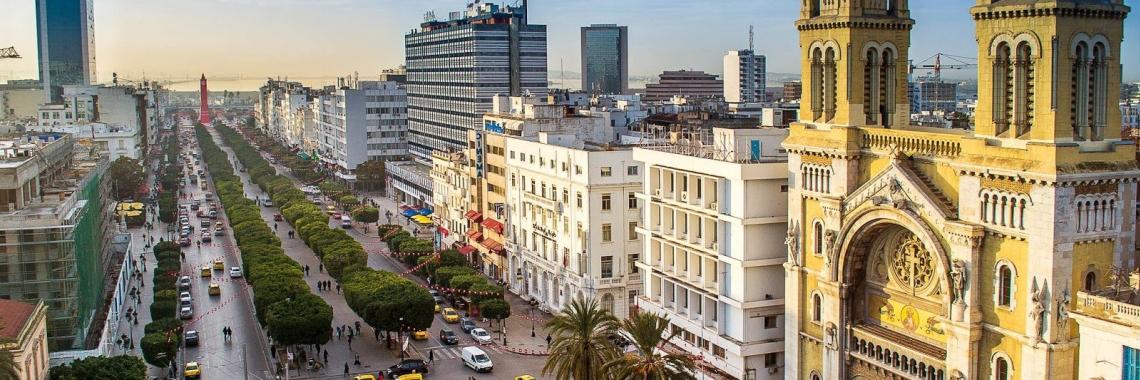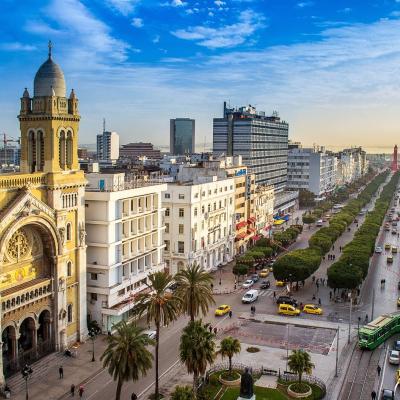
Tunis, an open city
Background
Through this innovative project, the Tunis International Partners expressed their solidarity to the population of Tunis during the period after the revolution of January 2011. Indeed, the inhabitants of the city of Tunis expressed their desire for a change, for more consideration in their daily lives.
The city of Tunis faces challenges regarding the improvement of the population living conditions in accordance with the expectations raised by the democratic transition initiated in January 2011. But the strong pressures from citizens demanding a clear and remarkable improvement of services offered to them is a crucial issue for the city in charge and for them to give a concrete answer to the population expectations in terms of improvement and democratization of the public services.
To this matter, the city of Tunis requested the support of its partners to get even closer to its citizens through the creation of consultation and dialogue channels to energize the associative fabric, to listen to the expectations of people, to ensure municipal services for all and to balance the relations between the different communities.
Goal
The improvement of local public services is a priority for the city of Tunis. To promote the quality of the services that the city provides for the inhabitants and city visitors, Tunis called on its international partners, which volunteered to guide the city in the identification of solutions destined to offer better services to the citizens. These solutions revolve around the following:
- Creating a working group, within the Mayor’s office, in charge of the coordination with associations as well as the support and training of city officers. These city officers work together with civil society and community offices to introduce the practice of participatory local governance. The participatory local governance consists in all the work made with the associations and to involve citizens in local administration. Training and motivation of associations is possible by the support of Marseille, the Luxemburg and the IAFM.
- Ensure the proper management of migratory flow either from the inside cities to the capital or neighbour countries, or foreign countries to Tunis, or from Tunis to Europe with the help of UCLG and ICM.
- Ensure social cohesion through the provision of equal services to Jewish, Christian and Muslim communities through the restoration project of the three cemeteries achieved thanks to the IAFM.
Implementation
The implementation followed the following steps:
- A diagnostic study of the current state of affairs was made and the priority actions to implement approved.
- From this study, the project manager for the restoration of the three cemeteries has been designated, the specifications prepared, and call for tenders launched. Selected businesses are well advanced. And the redevelopment of the Jewish and Christian cemeteries have been completed. The work on the Muslim cemetery is well underway and completion is expected in the third quarter of 2016
- For the action for the opening on civil society, a project manager is designated, consultation meetings with civil society were organized and a civil society forum is planned for the fall to guide associations to support local action.
- For the management of migration flows, a university professor has been retained as an expert to present the diagnostic study of the situation and will be in permanent contact with the municipal focal point. The submission of a diagnosis is scheduled for September. Thus it will be analyzed and an exchange with other partner cities of the two Mediterranean cities will be triggered to disclose best practices and retain the best action to take in Tunis to better manage migration flows.
Results
Muslim, Christians and Jews religious leaders seem satisfied with this initiative. Moreover, the following results were observed:
- Associations are very reactive to this reconciliation process between municipal government and associations. Their presence in meetings demonstrates their commitment. Their recall is insisting to advance in the project. It is a good sign of ownership of the operation.
- Satisfaction of international partners about the commitment of the City in themes that were managed solely by the Government before.
- More influence from the city on the national and international levels.
